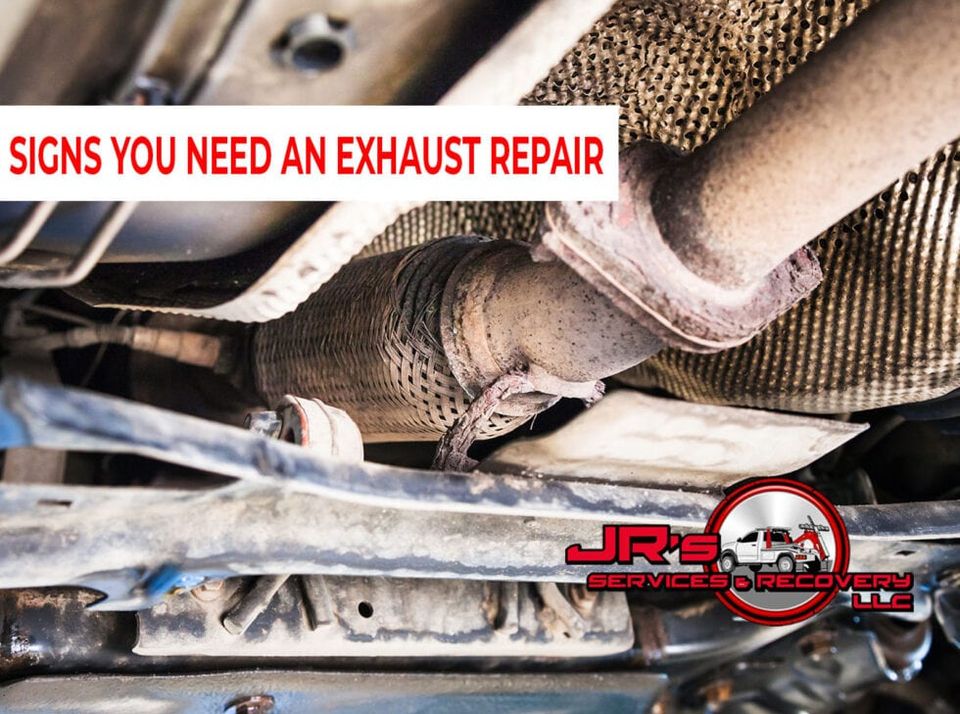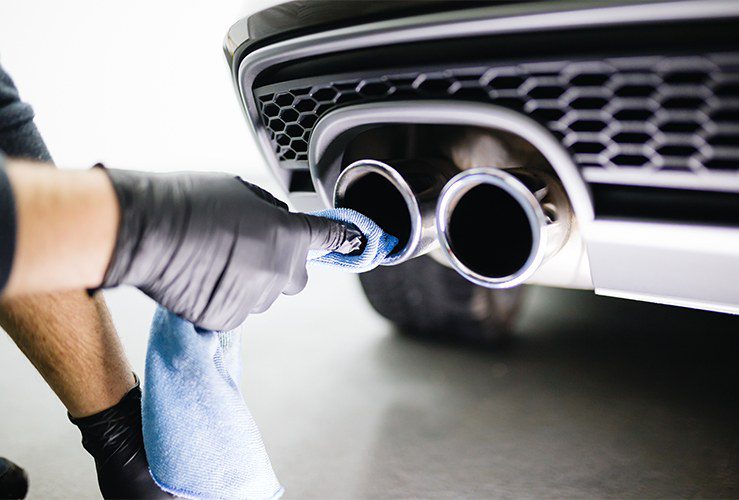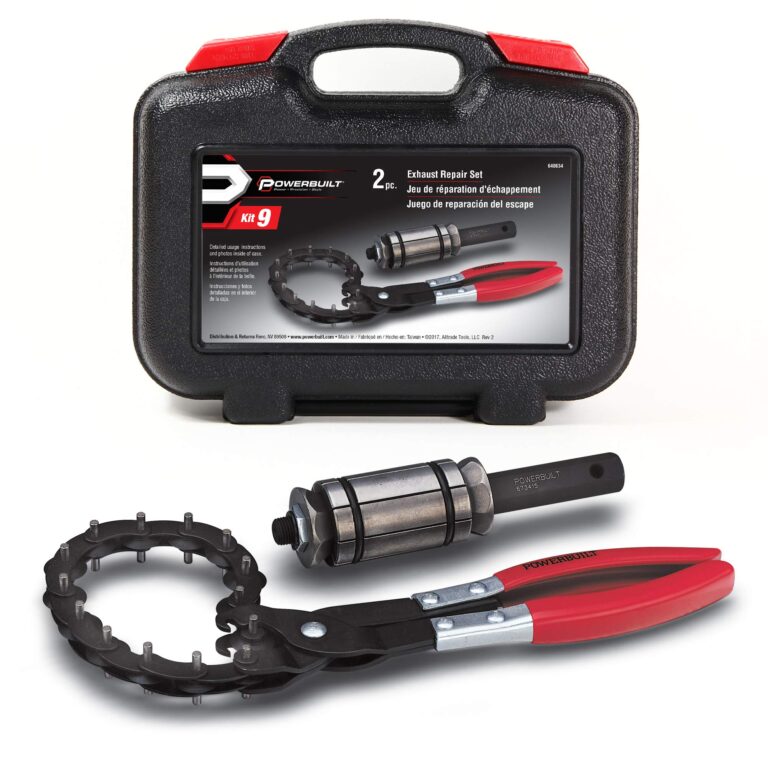Exhaust Leak in Car Symptoms: Warning Signs and Solutions
Exhaust leak in a car can cause symptoms like loud, hissing noises and a decrease in engine performance. An exhaust leak occurs when there is a gap or hole in the exhaust system, allowing toxic gases to leak out rather than being properly channeled away from the engine and out the tailpipe.
This can lead to potential safety hazards, as well as reduced fuel efficiency. In addition to the loud noises, other signs of an exhaust leak may include a strong smell of exhaust fumes inside the car, vibrations or shaking in the steering wheel or pedals, and even visible smoke or water dripping from the exhaust pipe.
It is important to address an exhaust leak promptly to ensure the proper functioning and safety of your vehicle.
Understanding Exhaust Leaks
An exhaust leak in a car refers to a gap or crack in the exhaust system, which allows harmful gases to escape before they reach the tailpipe. This can have various symptoms and can lead to performance issues in your vehicle. Understanding exhaust leaks is important to ensure the optimal functioning of your car.
Exhaust leaks in cars can occur due to several reasons. One common cause is corrosion of the exhaust system, which can lead to cracks or holes. Another reason is loose or damaged gaskets, which can create gaps in the system. Additionally, impact damage or faulty installation can also result in exhaust leaks.
The impact of exhaust leaks on car performance can be significant. Firstly, it can lead to loss of power and reduced fuel efficiency. The leaking gases can disrupt the proper functioning of the engine, resulting in decreased performance. Moreover, exhaust leaks can also give rise to a loud or distinctive noise from the exhaust system.

Credit: www.jrstowingservice.com
Warning Signs Of Exhaust Leaks
If you suspect an exhaust leak in your car, it is important to identify the warning signs of this issue. One common symptom is listening for unusual noises. If you hear a loud hissing or popping sound coming from the engine or exhaust system, it could indicate a leak. Another way to detect exhaust leaks is to pay attention to any strange odors inside the car. If you notice a strong smell of exhaust fumes while driving, it is likely that there is a leak in the system. Remember, exhaust leaks can be dangerous as they release harmful gases, such as carbon monoxide. It is important to address any exhaust leaks promptly to ensure the safety and proper functioning of your vehicle.
Effects Of Untreated Exhaust Leaks
Effects of Untreated Exhaust Leaks
Untreated exhaust leaks in a car can have potential risks to both the driver and passengers. One of the major concerns is the negative impact on engine performance. An exhaust leak can disrupt the normal flow of exhaust gases and result in a decrease in power and fuel efficiency. This can lead to a sluggish acceleration and reduced overall performance of the vehicle.
Another important consideration is the long-term damage that can occur to the exhaust system components. The heat and corrosive gases from the leak can cause the exhaust pipes, muffler, and catalytic converter to deteriorate over time. This can result in expensive repairs or even the need for a complete replacement of these components.
It is essential to address and fix exhaust leaks promptly to prevent further damage to the vehicle and ensure the safety and comfort of the occupants. Regularly inspecting the exhaust system and seeking professional help if any signs of an exhaust leak are detected can help in maintaining the overall performance and longevity of the car.
Step 1: Visual Inspection
Checking for visible signs of leaks:
- Examining exhaust manifold and gaskets
- Inspecting exhaust pipes and connections
An exhaust leak in a car can have several symptoms that can help you identify the issue. The first step in diagnosing an exhaust leak is to visually inspect the system. Start by carefully examining the exhaust manifold and gaskets for any signs of damage or cracks. Inspect the exhaust pipes and connections, looking for visible leaks such as holes or rusted areas. Pay close attention to the joints and connections where leaks are more likely to occur. It is important to address any visible signs of leaks promptly to prevent further damage and ensure proper functioning of the exhaust system.
Step 2: Using A Leak Detector
When it comes to detecting exhaust leaks in your car, there are various tools you can use. One popular method is using a leak detector. This tool is designed to help you identify any leaks in your car’s exhaust system quickly. Here’s an overview of how leak detection tools work:
| Leak Detection Tool | How to Use |
|---|---|
| Leak Detector Spray | Apply the spray to the suspected areas of the exhaust system. The spray will change color if there is a leak present. |
If you decide to use a leak detector spray, carefully read and follow the instructions provided with the product. It’s important to apply the spray to the specific areas where you suspect a leak may be occurring. After applying the spray, carefully inspect the sprayed areas for any color change, which indicates the presence of an exhaust leak.
Interpreting the results of the leak detector spray is crucial. If you notice a color change, it’s advisable to have your car inspected by a professional mechanic. They will be able to identify the exact location and extent of the leak, helping you to take appropriate repair measures.
Step 3: Professional Diagnosis And Repair
A professional diagnosis and repair for an exhaust leak in your car is crucial to ensure the safety and optimal performance of your vehicle. It is important to consult a trusted mechanic who has the necessary expertise and experience in dealing with exhaust system issues.
When diagnosing an exhaust leak, mechanics use specialized diagnostic equipment to pinpoint the source of the problem. These tools include smoke machines, pressure gauges, and thermal imaging cameras.
Once the leak has been identified, the mechanic will discuss the recommended repair options with you. The repair process may include fixing or replacing damaged components such as gaskets, pipes, or mufflers. The cost estimates for these repairs will vary depending on the extent of the damage and the specific parts needed.
| Importance of consulting a mechanic: | Diagnostic equipment for exhaust leaks: | Repair options and cost estimates: |
|---|---|---|
| To ensure safety and optimal performance of the vehicle | Specialized tools such as smoke machines, pressure gauges, and thermal imaging cameras | Fixing or replacing damaged components, cost estimates varying by extent of damage and parts required |
Regular Maintenance Practices
Regular Maintenance Practices
Regular maintenance is essential for keeping your car in good condition. One important aspect is routine inspections, which help identify potential issues before they become major problems. Regular inspections can help detect an exhaust leak early on, allowing for prompt repairs.
Importance of Routine Inspections:
- Routine inspections help ensure that your exhaust system is functioning properly.
- They can detect any signs of damage or wear, such as cracks, leaks, or loose connections.
- Identifying an exhaust leak early can prevent harmful gases from entering the vehicle’s cabin.
- Regular inspections also provide an opportunity to check for any unusual noises or vibrations, which may indicate an exhaust problem.
Proper Installation of Exhaust Systems:
Proper installation of the exhaust system is crucial for its performance and longevity. It’s important to have a qualified technician install or repair the exhaust system to avoid any potential leaks or other issues.
Replacing Worn-Out Components:
Over time, components of the exhaust system can wear out and need replacement. This includes the muffler, catalytic converter, and other parts. Regular inspections can help determine when these components need to be replaced, ensuring optimal performance and reducing the risk of an exhaust leak.
Driving Habits That Affect Exhaust System
Aggressive driving habits can have a significant impact on the health of your car’s exhaust system. Constantly revving the engine and driving at high speeds can put excessive strain on the system, leading to premature wear and tear. Additionally, aggressive acceleration and sudden stops can cause the exhaust to overheat, potentially resulting in an exhaust leak.
There are several factors that contribute to the development of premature exhaust leaks. One of the main culprits is rust and corrosion, which can be accelerated by driving in areas with high humidity or on roads treated with salt during winter. Poor road conditions, such as potholes and speed bumps, can also put strain on the system, causing it to weaken over time.
To minimize wear and tear on your car’s exhaust system, it is important to adopt good driving habits. Avoid aggressive driving practices like rapid acceleration and sudden braking. Instead, practice smooth and gentle driving techniques. Regularly maintaining your vehicle, including checking for any signs of exhaust leaks, can also help to identify and address any issues before they worsen.
Protective Measures For Your Car’s Exhaust System
Protective Measures for Your Car’s Exhaust System
Shielding exhaust components from road debris can help prevent damage and extend the lifespan of your car’s exhaust system. One effective measure is using heat-resistant materials to protect the exhaust pipes and mufflers from excessive heat. This can help prevent corrosion and prolong the durability of these components. Additionally, investing in quality exhaust system parts can make a significant difference in the performance and longevity of your car’s exhaust system. High-quality parts are less likely to develop leaks or fail prematurely, saving you from costly repairs in the long run. It’s crucial to choose components that are specifically designed for your vehicle’s make and model to ensure proper fit and functionality. Regular maintenance and inspections are also essential to identify and address any potential issues before they escalate into major problems. By taking these protective measures, you can keep your car’s exhaust system in optimal condition for a smooth and reliable driving experience.
Frequently Asked Questions Of Exhaust Leak In Car Symptoms
What Happens If You Drive With An Exhaust Leak?
Driving with an exhaust leak can be dangerous. It can lead to increased emissions, decreased fuel efficiency, engine damage, and even carbon monoxide poisoning. Therefore, it’s important to get the leak repaired as soon as possible to ensure safe and efficient operation of your vehicle.
Can You Drive A Car With An Exhaust Leak?
Yes, you can drive a car with an exhaust leak. However, it’s not recommended as it can be potentially dangerous. An exhaust leak can lead to harmful fumes entering the car cabin, affecting your health and impairing your ability to drive.
It’s best to get it fixed by a professional as soon as possible.
How Do I Know If My Car Exhaust Is Leaking?
Signs of a car exhaust leak include loud noises, a strong smell of exhaust fumes, decreased fuel efficiency, and vibrations felt while driving. Look for rust or holes in the exhaust system, and get it checked by a mechanic if you suspect a leak.
Is An Exhaust Leak Expensive To Fix?
Fixing an exhaust leak can vary in cost, depending on the extent of the damage. However, it is generally an affordable repair that can prevent further issues and improve the overall performance of the vehicle.
Conclusion
Being aware of the symptoms of an exhaust leak in your car is crucial for maintaining its overall health and functionality. From the distinct smell of gasoline to the loud hissing sound, these warning signs should not be ignored. If left untreated, an exhaust leak can lead to serious engine damage and even pose health risks to you and your passengers.
So, don’t hesitate to take your car to a trusted mechanic if you suspect an exhaust leak. Protect your car and your well-being by addressing this issue promptly.








